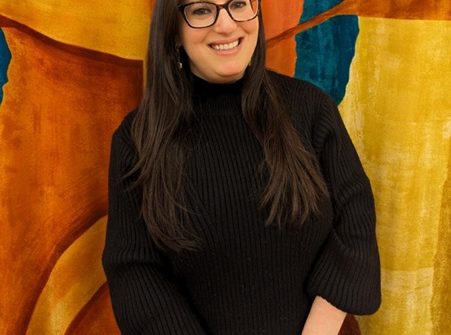The first time I referred to God in the feminine from the bimah I had been a Rabbi for about 2 years. It was a throw away comment at the end of a sermon that hadn’t really been about God or women or even feminism, but it was the main topic of conversation at Kiddush after the service! 12 years later and I’m still surprised how frequently just changing God’s pronouns shocks people.
But Jews have never thought of God as male. Indeed we have always used both male and female names and words to talk about God who is, of course, beyond gender. As Maimonides pointed out 800 years ago, any words we use to describe God, only serve to limit God, because our language and minds are limited.
One of the most famous feminine names for God is rooted in this week’s portion. The name is Shechinah; we read today variations of a promise that God will dwell among the people ‘Shachanti[1]’ if they build the Mishkan (the desert version of the Temple, also with the same root as Shechinah).
Throughout Rabbinic literature the Shechinah is referred to as dwelling in the desert Tabernacle (the aforementioned Mishkan) and in the Temple in Jerusalem. But without the Temple, can God still dwell with us? The texts tell us she doesn’t leave it there. According to Pirkei Avot[2] when we study Torah, the Shechinah is among us, the Talmud[3] tells us that when 10 or more people pray together, then the Shechinah will come and join us, when 3 judges sit, as they would for a Bet Din overseeing a conversion, the Shechinah is there too[4], God dwells with us around the beds of the sick[5] and has been with us whenever we have faced exile[6].
There have been plenty of times for us as a community historically, and for us as individuals, that we have not been able to sense the Shechinah among us. Today marks 2 years since the current war in the Ukraine began, 140 days since the October 7th attacks, and I know we also have among us families who have lost beloved family members just this week.
It is, of course, possible that God is not dwelling with us, either because the idea is nothing more than idea, or because God the parent has given up on the squabbling children who can’t seem to grasp the bigger picture or plan and are endlessly causing havoc in the beautiful home painstakingly made for them (can you tell it’s just been half term?)
Perhaps the idea of God dwelling among us with merely a stepping stone idea that the Israelites leaving Egypt needed to bring them away from idolatry, and into an understanding of a much more difficult to grasp unifying spiritual principle.
In our morning blessings today we gave thanks that we are made in the image of God, and perhaps it is through looking at the godliness in one another that we can catch glimpses of the Shechinah dwelling with us. Indeed Midrash suggests that where we leave good deeds in the world, we can see God’s footprints left behind. As Rabbi Hugo Gryn famously said of Auschwitz, the question wasn’t where was God, but where was humanity?
Reform Judaism has from time to time been critiqued for being all about Tikkun Olam –all about repair of the world and social justice. These are values deeply rooted in Judaism, not Reform Judaism, and to be honest, if it’s the worst thing someone can find to say about my Judaism, I’ll take it. Our Judaism and relationship to the divine should absolutely be about rooting ourselves in how to improve things for the next generation, if not for ourselves. But if we want the Shechinah to be with us as we take on these tasks, both small and large, the Talmud tells us we need to do it in joy[7]! So it is not just the mitzvot that count, but doing them with a sense of purpose and happiness that brings the intimate dwelling presence of God to be with us. And there is a logic to this. Our Judaism as a way of life only has a future if it offers us meaning, comfort and joy. Without these, empty rituals and practices will slowly be lost, and there is so much richness and meaning and happiness that can be found in our practices and community, I hope we don’t lose these in the darkness of our times. Whether or not the Shechinah is dwelling with us, or watching from afar, the way we dwell with one another can ensure that no one need feel alone or abandoned.
Cain Yehi Ratzon, may this be God’s will.
Venomar
Amen
[1] Ex 29:45 and 46
[2] 3:6
[3] Sanhedrin 39a
[4] Berachot 6a
[5] Shabbat 12b
[6] Megillah 29a
[7] Shabbat 30b



